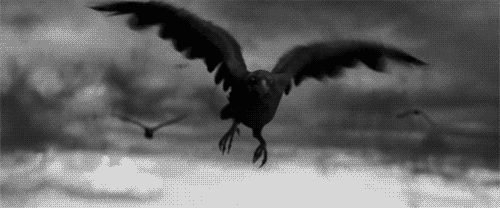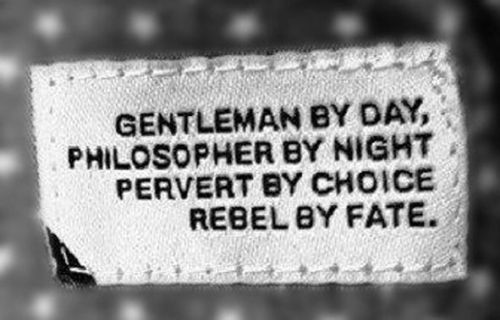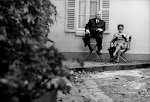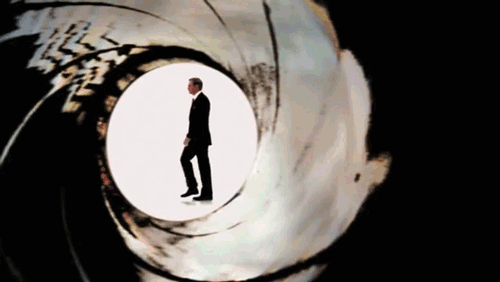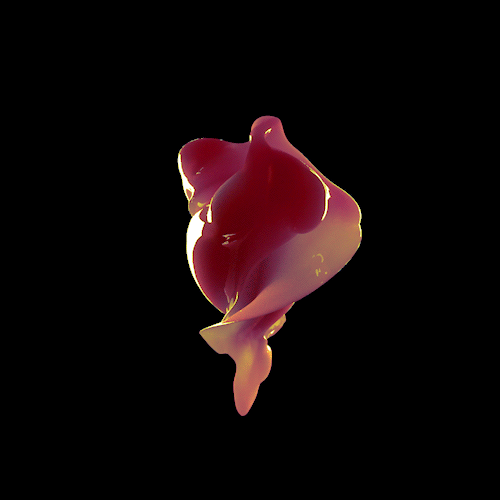
Friday, October 31, 2008
...and it finally arrived!

Thousands of fans braced themselves against chilly weather in London's Leicester Square Wednesday night to watch celebrities, including Princes William and Harry, arrive on the red carpet for the world premiere of the latest James Bond movie, Quantum of Solace, the 22nd in the franchise and starring Daniel Craig. Reports said that security was tight, with attendees refusing to admit anyone carrying cell phones for fear that they might record scenes from the film and post them on the Internet. The British reviews have been mixed. Geoffrey McNab wrote in the London Independent that the film "doesn't seem like a major entry in the Bond canon. Well under two hours long, it's shorter and more frenetic than most of its predecessors, and an often-jolting experience to watch. Loose ends about. What it does have, though, above all, is vigor. The franchise hasn't run out of juice quite yet." Peter Bradshaw in the Guardian called it "a crash-bang Bond, high on action, low on quips, long on location glamour, short on product placement." Writing in the Daily Mirror, critic David Edwards remarked that the movie "doesn't feel like a Bond film at all. Not once does Craig say: 'The name's Bond. James Bond.' There's no Q or his gadgets. Heck, we even see Bond in a cardigan. There are no risque quips or arched eyebrows." He concluded: "It doesn't disappoint - just don't expect the brilliance of Casino Royale."
 Judy Dench with Swarowski 007 tatoo
Judy Dench with Swarowski 007 tatoo
Wednesday, October 29, 2008
Hitch in drag ?

did Alfred Hitchcock appear in drag for a second cameo in North By Northwest?
The idea came from these frames showing a stout woman with Hitchcockian features who appears on a train in the film.
Maybe The Master had casted a female look-alike precisely to initiate this kind of "Paul is dead" debate.

Or maybe not.

HitchcockTruffaut - Edition Definitive - Ramsey - page 273
Thursday, October 23, 2008
Wednesday, October 22, 2008
Interview with Ken Adam
Ken Adam was born in Berlin, Germany to a Jewish family. His family moved to England in 1934, when Adam was 13 years old, and then went to St. Paul's School in Barnes. Later, he attended University College London, training to be an architect. Although he was still a German national, he served as a pilot for the Royal Air Force during World War II, where he flew the Hawker Typhoon on many missions over NW Europe. This was a brave move: if he had been shot down and captured, instead of being sent to a prisoner of war camp, the Germans would have been able to hang him as a traitor. Adam was the only German national to be an RAF fighter pilot. He was later naturalised as a British citizen and was knighted in 2003 by Queen Elizabeth II.
Tuesday, October 21, 2008
Friday, October 10, 2008
The Uninvited (1944)
Considering the sheer number of horror films to come out of Hollywood during the 1940’s, it is simply astonishing that there should be so few movies about hauntings made during that decade in which the ghosts turn out to be unambiguously real. In fact, I’m pretty sure Paramount’s The Uninvited (helmed by Lewis Allen, who would become an enormously prolific television director in the mid-1950’s) is the only one I’ve ever seen. Whereas most 40’s “ghost” movies portrayed phantoms, wraiths, and specters who would eventually stand revealed as a Nazi spy or the impossibly wealthy young heroine’s avaricious uncle or some such thing, The Uninvited plays it completely straight, and even goes so far as to posit a house haunted by two ghosts— one of them good, the other evil, and the both of them squabbling fiercely over the fate of someone still living. Nor is it, as was generally the case on those extremely rare occasions when a 40’s film dealt with an authentic ghost, a comedy or a romance. There are elements of both comedy and romance in The Uninvited, but the movie’s main business is unquestionably the protagonists’ quest to uncover the secrets that will finally lay the warring spirits to rest.
Those protagonists are pianist and London newspaper music critic Roderick Fitzgerald (Ray Milland, from Terror in the Wax Museum and The Premature Burial) and his sister, Pamela (Ruth Hussey). The Fitzgeralds are nearing the end of a holiday in Cornwall when they discover a huge and beautiful mansion standing abandoned atop the sea cliffs overlooking the Atlantic. The pair end up letting themselves in through an open window when their dog, Bobby, chases a squirrel inside, and Pamela instantly falls in love with the place. It reminds her very much of the house where she and Rick grew up, and it’s in such an excellent state of preservation that it would not be utterly ridiculous to imagine living there. Pam talks her brother into checking around to discover who owns the place, and making an offer to buy in the event that the house on the cliff is for sale.
The house turns out to belong to a retired naval officer by the name of Commander Beech (Donald Crisp, from Svengali and the 1941 version of Dr. Jekyll and Mr. Hyde). When the Fitzgeralds go to see Beech, they are greeted by his granddaughter, Stella Meredith (The Unseen’s Gail Russell), who tells them that the commander is out at the moment, but should be returning relatively soon. While Pam and Rick wait in Beech’s study, they mention to Stella that they’re interested in buying the old mansion, which the girl identifies as Winward House. This obviously disturbs Stella for some reason, and she begins attempting to hurry the visitors out, saying that Winward House is not for sale, regardless of what Roderick may have heard to the contrary. That’s when Beech comes home. In flat contradiction to what his granddaughter was saying, Beech confirms that he is looking to sell Winward House, and indeed that he’s willing to do so for even as little as £1200, the almost insultingly low figure which Rick offers (presumably in an attempt to indulge his sister’s new fixation while simultaneously stacking the deck against actually having to follow through on it). The Fitzgeralds are stunned, and though Roderick makes a short-lived effort to backpedal, Pamela pushes him ahead into closing the deal.
So why was Commander Beech so eager to unload the mansion on the cliff, and why was his daughter willing to resort to subterfuge to stop him from doing so? Well, the house had been in Beech’s family for generations, but its last occupants were his daughter, Mary, and her husband, a painter named John Meredith. Stella also spent the first years of her life under its roof. Mary was killed in a fall from the cliffs when Stella was three years old, and Meredith died too not long thereafter. The house thus has strong associations for both the old man and his granddaughter, but their respective currents of sentiment run in opposite directions. For Stella, Winward House is all that remains of her mother; for Beech, it is the scene of the most terrible loss he has ever suffered. As we shall see, however, there is more to the commander’s desire to be quit of Winward House than painful memories. Ever since Mary Meredith died, the mansion has had a reputation for hauntedness, and though Beech is at pains to deny any such thing, he does indeed believe that there are spirits walking its corridors. More to the point, he believes that there are malign spirits, which mean to do harm to Stella specifically.
A rather large monkey wrench is thrown into Beech’s plan for keeping his granddaughter and the ghosts at arm’s reach from each other, however, when Stella befriends the Fitzgeralds shortly after they move in, and indeed strikes up a romance with Roderick. The commander forbids the relationship, but he finds a modern-minded twenty-year-old girl to be rather less controllable than the crew of a torpedo boat destroyer, and all he really accomplishes is to make himself sick with emotional overexertion. So concerned does he become, in fact, and so resistant does he find Stella, that he places a phone call to a mysterious woman named Holloway (Cornelia Otis Skinner) to make arrangements for the girl’s removal from the scene by force, should no other option present itself. Meanwhile, the Fitzgeralds are discovering that the rumors of “disturbances” in Winward House are absolutely true. The pets refuse to set foot on the second floor, cold drafts blow through the house in places where they can’t be accounted for, a woman can be heard sobbing shortly before dawn nearly every morning, maid Lizzy Flynn (Barbara Everest, of Gaslight and These Are the Damned) sees a spectral apparition of a woman in white, and the room upstairs which John Meredith used as his studio gives off an inexplicable aura of menace and despair. Nor does it take long before Stella encounters the strange manifestations at Winward House, but she reacts to them rather differently than the place’s new owners. Though she is initially as frightened as anyone by the presence in the studio, and though something briefly seizes control of her and causes her to come within an ace of running off the cliff to her almost certain death, there is something else in the house which Stella finds soothing and comforting. In particular, there is something in Winward House which manifests itself with the smell of mimosas, and it is that scent that convinces Stella the mansion is haunted by her mother. You see, when she was but a child, her father gave her a bottle of her mother’s perfume, which she has since parceled out so sparingly that she still has a small quantity of it even today; that perfume smells strongly of mimosa.
All of this gives Pam and Rick a great deal to think about. On the one hand, they know very well that strange and inexplicable things routinely occur in their new house, but Roderick at least is not quite ready to dive headlong into believing the place is haunted. Stella, unshakably convinced that it’s the spirit of her mother in Winward House, wants to spend as much time there as possible, but her first encounter with the forces inhabiting the place nearly killed her. After talking the matter over with neighborhood physician Dr. Scott (Alan Napier, from Journey to the Center of the Earth and Isle of the Dead), Roderick and Pamela decide to stage a séance in Winward House. Neither of the men believe in the efficacy of such things, but they think Stella will, and they also believe there’s a good chance that a fake message from Mary Meredith directing Stella to steer clear of the house will keep her safe from whatever it is that nearly pitched her off the cliff that night. The séance initially goes perfectly according to plan, with the improvised ouija board identifying the ghost as Stella’s mother, and denying that it wants Stella in the house with it, but then things diverge rather sharply from the script. The makeshift planchette suddenly begins picking up real signals from the ghost, which informs Stella that it is in the house not because it was waiting around for a reunion, but because it is standing guard. If the ghost is to be believed, there is a second presence in the house, somebody named Carmel, and that this second presence is a danger to Stella. Then the room grows cold, and something seizes the wineglass which Stella, Scott, and the Fitzgeralds had been using as their planchette, and shatters it against the nearest fireplace.
So who is this Carmel, and what does she have to do with Winward House and the Meredith family? As Rick and Pamela will gradually piece together, Carmel was an artist’s model whom Stella’s father often employed, and with whom he was cheating on his wife. She was at Winward House on the night when Mary Meredith died, and her presence has led to much speculation over the possibility that Mary’s fall was neither accident nor suicide, but murder instead. But whatever happened between the two women out on the cliffs, it went nearly as badly for Carmel, who died herself just a couple of days later. Furthermore, Dr. Scott has in his possession a diary kept by his predecessor which makes it sound as though Carmel may have been allowed to die deliberately by the nurse who treated her in the aftermath of the confrontation. That nurse had been hired by the family to look after Commander Beech, who had a weak heart even back then, and there is some indication that she was Mary Meredith’s lesbian lover as well— certainly that would go some way toward explaining why Mary put up with her husband’s infidelity for so long, to say nothing of the motive it would provide the nurse for a revenge killing after Mary’s fatal fall. The nurse’s name? Why, it’s Holloway, of course. But as is usual for movies like this one, the ties between Carmel and the Meredith family were really much more complicated than is realized by anyone who is willing to talk about them, and Stella herself is at the center of the undying rivalry between the two dead women.
So far as I’ve seen, nobody but RKO was making horror movies as serious and mature as The Uninvited as a matter of course during the 1940’s, and to watch The Uninvited is to wonder why the hell not. Though it is hampered by a few descents into the maudlin or the saccharine, and by an obtrusively melodramatic score from the unaccountably well-regarded Victor Young, The Uninvited was probably the best cinematic ghost story to be made in the English-speaking world until Robert Wise’s The Haunting almost twenty years later. The spook scenes are commendably creepy— even the ones involving the benevolent ghost of Stella’s mother— and the visible manifestations of the evil ghost are nearly as effective as the nightmare scene with the animate wedding dress in The Amazing Mr. X. The mystery surrounding the haunting is unraveled in a believable manner, and the answers that are uncovered involve a startling amount of taboo material for a 1940’s Hollywood film. What levity there is comes not in the form of typical comic relief, but rather through the much more satisfying expedient of making one of the central characters a roguishly sarcastic wise-ass. And speaking of that roguishly sarcastic wise-ass, B-movie fans are likely to be knocked for a loop by Ray Milland’s performance. We, after all, are accustomed to seeing him as an older and grouchier man in the movies he made for American International during the 60’s and 70’s; his turn here as a dapper young sophisticate— let alone a romantic leading man— sets him in an entirely new context, and one which he inhabits with unexpected ease and assuredness. All in all, the biggest mystery in The Uninvited is not the origin of the haunting of Winward House, but rather why so few movies like this one were made in the United States during the old days.
Friday, October 03, 2008
Robert Redford remembers Paul Newman

I first met Paul Newman in 1968, when George Roy Hill, the director of Butch Cassidy and the Sundance Kid, introduced us in New York City. When the studio didn't want me for the film it wanted somebody as well known as Paul he stood up for me. I don't know how many people would have done that; they would have listened to their agents or the studio powers. The friendship that grew out of the experience of making that film and The Sting four years later had its genesis in the fact that although there was an age difference, we both came from a tradition of theater and live TV. We were respectful of craft and focused on digging into the characters we were going to play.
Both of us were fundamentally American actors, with the qualities and virtues that characterize American actors: irreverence, playing on the other's flaws for fun, one-upmanship but always with an underlying affection. Those were also at the core of our relationship off the screen. Paul was very engaged at work. He was there. He liked a lot of rehearsal. But he was fun too. Whenever he'd make a mistake on set, he would enjoy it more than anybody. I'd look at him, and he'd look at me, and I'd say, "You're not fooling anybody. You're not staring at me intensely; you've lost your line." And he'd roar with laughter.
We shared the belief that if you're fortunate enough to have success, you should put something back he with his Newman's Own food and his Hole in the Wall camps for kids who are gravely ill, and me with Sundance and the institute and the festival. Paul and I didn't see each other all that regularly, but sharing that brought us together. We supported each other financially and by showing up at events. And then we'd give each other a hard time. Whatever success one of us would have, the other would knock it down. If you're in a position of being viewed iconically, you'd better have a mechanism to take yourself down to keep the balance. I think we did that for each other.
Thursday, October 02, 2008

With fanaticism about James Bond at its highest level since the 1960s, it's not surprising that the collector's market is booming. However, if you think people will be impressed by your 1979 Mego Moonraker action figures, try topping this: an unnamed Bond fan has spent £200,000 to purchase an Aston Martin that was accidentally wrecked during the filming of Quantum Of Solace. The car ended up in a lake and is not driveable. Not bad when even a mishap can result in a profit. Auric Goldfinger would be proud.
it's me.
Wednesday, October 01, 2008
Censorship behavior
About the new USA Bette Davis postage stamp,it's a photo from ALL ABOUT EVE, and if you staring at it for a while you realize there is something wrong. She has a gloved hand raised beneath her chin in a very awkward pose. They removed a cigarette from her fingers! Censorship from Uncle Sam! Didn't they think anyone would notice? Film historians should revolt!


Subscribe to:
Posts (Atom)




